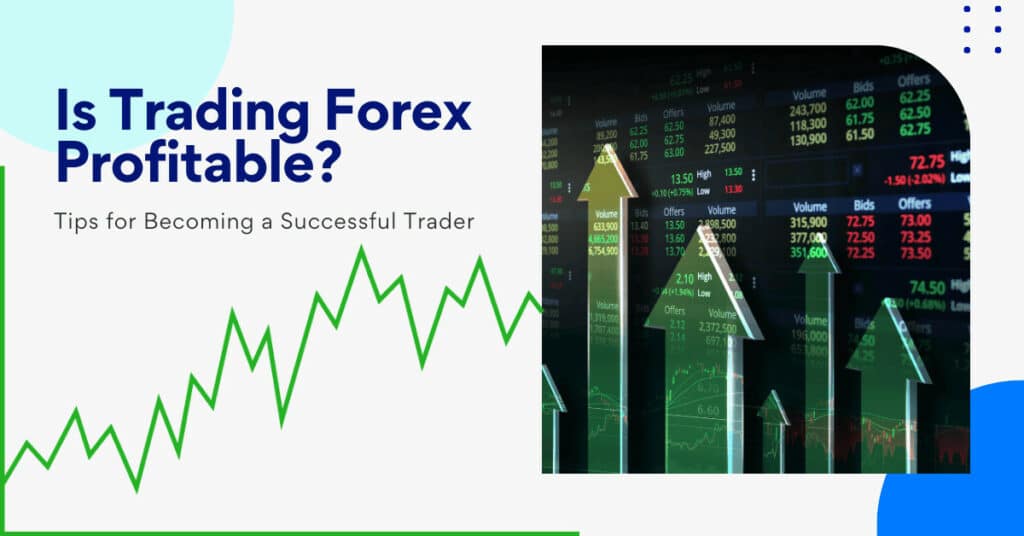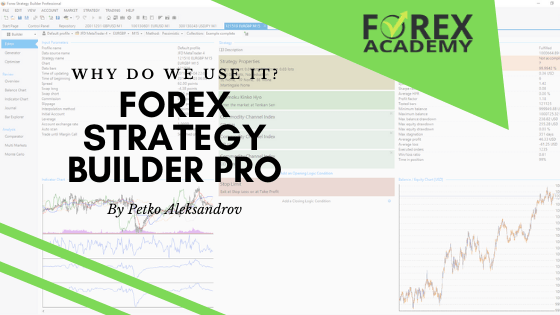Forex trading has long intrigued both novice and experienced investors with its promise of significant profits. As we are already into the last quarter of 2024, the question remains: is trading forex profitable, and how can one navigate this complex market to become a successful forex trader? This article offers a comprehensive look into the mechanics of the forex market, the role of trading strategies, as well as the essential steps required to thrive in this dynamic environment.
Table of Contents:
How Does Forex Trading Work?

Understanding the Forex Market
The forex market, also known as the foreign exchange market, is the largest financial market in the world, where currency pairs are traded 24 hours a day. Unlike other markets, there is no centralized exchange; rather, trading is conducted over-the-counter via a global network of banks, brokers, and financial institutions. This decentralized nature allows for a diverse range of trading opportunities, making forex trading both highly accessible and potentially profitable for traders who understand the intricacies of the market.
To navigate this huge market, a trader must understand how currency values are influenced by different factors such as economic indicators, geopolitical events, and market sentiment. Understanding these factors is crucial not only in making informed trading decisions but also in leveraging the forex market’s potential. As traders become more proficient in interpreting these signals, they can exploit market movements to their advantage, potentially achieving a profitable outcome.
Key Currency Pairs You Need to Know
In the world of forex trading, not all currency pairs are created equal. The most popular pairs, such as the EUR/USD, USD/JPY, GBP/USD, and USD/CHF, among others, are known as the major currency pairs. These pairs are highly liquid and often exhibit lower volatility, which makes them attractive options for both beginner and experienced traders. For this purpose, understanding the behavior and correlation of these key pairs is essential for developing effective trading strategies.
Trading these major pairs often involves analyzing different factors such as economic data releases, interest rate decisions, and geopolitical developments that can impact currency values. By focusing on these pairs, traders can take advantage of the high liquidity coupled with tighter spreads, which may contribute to a more profitable trading experience. Moreover, familiarity with these pairs provides a solid foundation for expanding into other currency pairs as traders gain confidence and expertise.
The Role of Leverage in Forex Trading
Leverage is a powerful tool in forex trading that allows traders to control larger positions with a smaller amount of capital. While leverage can amplify profits, it also increases the potential for losses, making it a double-edged sword. Understanding how to use leverage responsibly is critical for any trader in order to achieve profitable forex trading outcomes.
Above all, traders must calculate their risk tolerance and ensure they do not overextend their trading accounts by using excessive leverage. By employing risk management techniques, such as setting stop-loss orders and maintaining a well-balanced trading plan, traders can harness the benefits of leverage without exposing themselves to undue risk. Mastery of leverage can transform a trading system from a speculative venture into a structured approach to capturing profit in forex.
What Makes Forex Trading Profitable?

Analyzing Profit Potential in Forex
To determine whether forex trading can be profitable, traders must analyze the market’s profit potential by assessing various factors, including market conditions, volatility, and trading strategies. The ability to identify and capitalize on market trends is crucial to maximizing profits. Successful traders often employ technical analysis and fundamental analysis to gauge market direction and make informed trading decisions.
By understanding market dynamics and being able to predict currency movements, traders can position themselves to exploit opportunities and achieve significant profit. The use of trading tools and platforms that provide real-time data and analytics further enhances a trader’s ability to identify profitable trades. Consistently evaluating and refining one’s approach is key to maintaining a competitive edge and ensuring forex trading remains profitable.
How Trading Strategies Influence Profitability
Trading strategies are pivotal in determining the profitability of forex trading. Each strategy involves a distinct approach to the market, tailored to specific trading styles and risk appetites. The choice of strategy can significantly impact the potential for forex trading profit, as each method requires different levels of analysis, patience, and market insight. Successful traders often diversify their strategies to adapt to varying market conditions, thereby increasing their chances of making a profit.
Avoiding Emotional Trading to Increase Profits
Emotional trading is one of the biggest obstacles to achieving consistent profitability in forex trading. When traders let emotions such as fear or greed dictate their trading decisions, they often deviate from their trading plans, leading to impulsive actions that can result in significant losses. To avoid emotional trading, traders must cultivate discipline and adhere to a well-defined trading plan.
Developing a robust set of rules and sticking to them, even in the face of market fluctuations, can help traders maintain their focus and avoid costly mistakes. Utilizing tools such as trading journals to analyze past trades and learn from previous experiences can also contribute to more rational decision-making. By prioritizing logic over emotion, traders can enhance their ability to execute profitable forex trading strategies consistently.
If you are looking for a way to trade Forex without emotional stress while achieving consistent results, join our Exclusive 21-Day FREE Algo Trading Course + ROBOTS to explore advanced algorithmic programs.
Which Forex Trading Strategies Should You Use?
Exploring Day Trading vs Swing Trading
Day trading and swing trading are two prevalent forex trading strategies that cater to different trading styles and objectives. Day trading involves opening and closing multiple trades within a single day, aiming to capitalize on short-term price movements. It requires a keen eye for market trends, rapid decision-making, and the ability to manage stress effectively.
Swing trading, however, takes a more extended approach, with traders holding positions for several days or weeks to exploit intermediate-term trends. This strategy allows for more thoughtful analysis and less frequent trading decisions, making it suitable for those who prefer a less intensive trading style. Selecting between these strategies depends on a trader’s time commitment, risk tolerance, and market expertise.
Building a Solid Trading Plan
A well-structured trading plan serves as a blueprint for success in forex trading. It outlines objectives, risk management protocols, and specific entry and exit strategies tailored to individual trading styles. A comprehensive trading plan considers factors such as market conditions, currency pairs, and leverage, providing a clear path to achieving profitable forex trading.
Developing and adhering to a trading plan requires discipline and a commitment to continuous improvement. Traders must regularly review and refine their plans to adapt to evolving market dynamics and personal growth. By having a solid plan in place, traders can approach the forex market with confidence, mitigate risks, and maximize their profit potential.
Check out the video below to find out more about Different Types of Strategies with Expert Advisors.
Choosing the Right Forex Broker
Selecting the right forex broker is a critical decision that can significantly impact a trader’s success. A reputable broker offers competitive spreads, a robust trading platform, and reliable customer support. Traders should assess brokers based on their regulatory compliance, trading conditions, and the range of services provided.
Additionally, evaluating a broker’s reputation through reviews and testimonials can provide valuable insight into their reliability and trustworthiness. Choosing a broker that aligns with a trader’s specific needs and trading style is essential for facilitating seamless trading operations and achieving profitable outcomes. By partnering with the right broker, traders can focus on developing their strategies and executing trades effectively.
How Can You Become a Successful Forex Trader?

Starting Your Forex Trading Journey
Embarking on a forex trading journey requires careful preparation and a solid foundation of knowledge. Aspiring traders should begin by familiarizing themselves with the fundamentals of the forex market, including key concepts such as currency pairs, leverage, and trading strategies. Educating oneself through online courses, webinars, and reading materials can provide a comprehensive understanding of the market dynamics.
Practicing with demo accounts is also crucial, as it allows beginners to gain hands-on experience without risking real capital. By simulating real trading conditions, traders can develop their skills and build confidence in their trading decisions. Starting with a clear plan and a focus on continuous learning sets the stage for a successful forex trading career.
For those interested in in-depth, structured learning, consider exploring EA Trading Academy’s courses, which offer valuable insights and practical resources for building a solid trading foundation.
Learning from Successful Traders
One of the most effective ways to become a successful forex trader is to learn from those who have already achieved success in the field. Observing the strategies, habits, and decision-making processes of seasoned traders can provide invaluable insights into what it takes to thrive in the forex market. Engaging with trading communities, attending seminars, and seeking mentorship are excellent avenues for gaining knowledge and inspiration.
Successful traders often stress the importance of discipline, risk management, and adaptability, emphasizing that these elements are crucial for long-term profitability. By emulating their practices and incorporating their lessons into one’s trading approach, aspiring traders can enhance their skills and increase their chances of making a profit in forex trading.
Managing Your Trading Capital Effectively
Effective capital management is a cornerstone of successful forex trading. Traders must allocate their funds wisely and implement risk management strategies to protect their capital from significant losses. This involves setting realistic goals, determining risk tolerance, and adhering to position sizing rules that prevent over-leveraging.
Using tools such as stop-loss and take-profit orders can help traders manage their risk exposure and lock in profits. Additionally, maintaining a trading journal to analyze past performance and adjust strategies accordingly is crucial for continuous improvement. By managing trading capital effectively, traders can sustain their trading activities and increase their potential for long-term profitability.
If you already using algo trading , you should check this video: How to Keep Your Trading Robots Profitable
What Are the Risks of Forex Trading?

Understanding Why Many Traders Lose Money
Despite the potential for high profits, forex trading carries significant risks that can lead many traders to lose money. Common reasons include a lack of understanding of the market, inadequate risk management, and emotional decision-making. Many traders enter the market without sufficient knowledge or preparation, leading to costly mistakes.
To mitigate these risks, traders must educate themselves thoroughly and develop a disciplined approach to trading. By focusing on building a solid foundation of knowledge and implementing sound risk management strategies, traders can reduce the likelihood of losses and improve their chances of achieving profitable forex trading.
Mitigating Risks with a Managed Forex Account
For traders seeking to minimize risks, a managed forex account offers a viable solution. These accounts are handled by professional money managers who make trading decisions on behalf of the investor. By leveraging the expertise of seasoned traders, investors can benefit from their knowledge and experience while minimizing their own involvement in day-to-day trading activities.
Managed accounts come with their own set of considerations, such as management fees and the level of control investors wish to retain. However, they provide an opportunity to participate in the forex market without the stress and complexity of managing trades independently. For those looking to mitigate risks while still pursuing profit potential, a managed forex account can be an attractive option.
Recognizing the Impact of Exchange Rate Fluctuations
Exchange rate fluctuations are inherent in forex trading and can have a significant impact on a trader’s profitability. These fluctuations are driven by a myriad of factors, including economic data releases, geopolitical events, and market sentiment. Traders must stay informed and be able to anticipate potential changes in exchange rates to manage their trading positions effectively.
Understanding the drivers of currency movements and using technical and fundamental analysis can help traders make informed predictions about future price action. By recognizing the potential impact of exchange rate fluctuations, traders can adjust their strategies accordingly and position themselves to capitalize on profitable opportunities while minimizing risks.
Conclusion
While forex trading offers significant profit potential, success depends on an informed, strategic approach. By mastering key market fundamentals, employing disciplined risk management, and refining strategies based on market dynamics, traders can build a path toward profitability. Ultimately, consistent success in forex trading requires patience, adaptability, and a commitment to learning—making it accessible and achievable for those willing to invest the time and effort.



